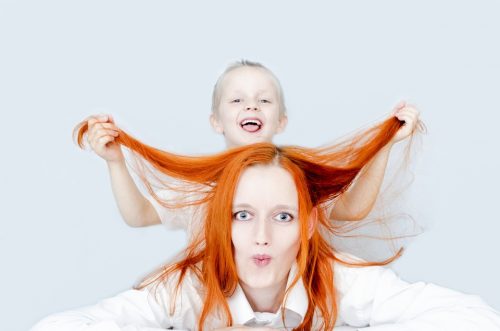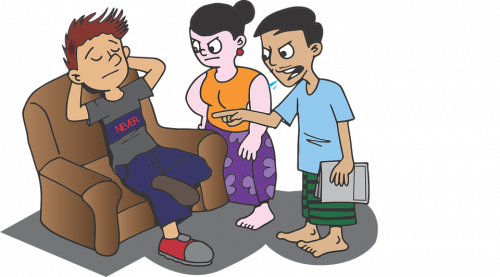Pediatric therapy: Join us as we embark on a trip to investigate its complexities, during which we will highlight the vital role that pediatric therapy counselors play in promoting the well-being of your kid. Learn about the essential principles of treatment in pediatrics as we study how it helps the general growth and development of your kid while you are informed about these fundamental aspects.

Pediatric Therapy For Improving Children’s Overall Mental Well-Being And How It Can Help Resolve Other Mental Conditions
Do children’s counselors in a clinical setting work with children of all ages and developmental stages? Let’s delve deeper into understanding how pediatric therapy works, its benefits, and the role of children’s counselors in this informative article.
According to a team of pediatric therapy associates and psychologists whose expertise and skills lie in the treatment, the mental state of a patient depends on parenting behavior. Treatment places an emphasis on mental well-being and mental health problems in bullying.
Things That Affect Children’s Overall Mental Health And Their Well-Being
As per pediatric therapy is concerned, the reasons for pediatric psychological issues are quite trivial. Your parenting mistakes merely cause your kid’s anxiety and low self-esteem. So what are these character traits that cause your child’s wrong behavior? BetterHelp made a list for you concerning effective pediatric therapy and other pediatric issues.

Resolving Mistakes Parents Make According To Children’s Counselors
Helicopter Parenting. According to most pediatric therapists, this act of always watching and scrutinizing your children leads to psychological issues such as a lack of independence. It hinders them from making significant decisions for themself as family and community members, and they think that the world is never safe without you in it. Your children may need counseling to deal with their issues.
“Helicopter parenting typically describes hyper-involved. They try to guide, coax, compel or even force children to do what they think is “best” for him/them,” Mike Brooks, Ph.D., therapist explains.
Imposing A Feeling Of Guilt. When you encourage your children by enumerating the list of your sacrifices, you are not doing them a favor. Instead, you are imposing guilt that leads to constant pressure and stress.
Focusing On Strict Compliance. Understandably, you want to encourage your children to do their best in everything. However, pediatric counselors say that too much pushing can lead to restlessness and exhaustion. Thus, your kids need to feel complete relaxation for them to be able to work productively. This is what pediatric therapy has emphasized – that patients be provided with resources for them to relax. If they don’t, you are taking away an essential aspect of their life – childhood.
Questioning Their Capabilities. One of the primary reasons children experience a mental condition is constant doubt about their capabilities. According to therapists, they might grow into an adult who subconsciously focuses themselves in adverse situations and might even need treatment. Most therapists advise that parents should trust their children’s abilities and coordination.
Deciding For Your Kid. Most counselors believe that the essence of thinking that your child is still not mature enough to make decisions in certain activities is bad parenting behavior. That is according to ABA therapy experts. As per treatment principles, when you make firm arrangements for your wonderful kids because you think that they’re too young to understand what’s good and what’s bad for them, you’re not only depriving them of their rights but also limiting their skill range, mental equipment, and creative capabilities to creating necessary adjustments.
Lack Of Sensitivity. It is normal for kids to express their emotions, so frequently stopping them from showing a weak side leads to an emotional shutdown. A child eventually learns to suppress emotions, and that can turn into psychosomatic issues. He may have problems identifying the different feelings and psychological responses. It would be a great time to achieve specific advice from counselors’ offices.
“Talking about emotions helps children learn about their own and other people’s internal experiences. Wrapping big, messy emotions up in words makes them seem more understandable and therefore more manageable,” says clinical psychologist Eileen Kennedy-Moore, Ph.

Ways On How To Handle Children With Different Mental Health Conditions: Don’t Delay!
Many pediatric therapists emphasize the importance of commitment when working with children, whether their needs involve sensory integration, motor planning, autism support, speech-language, or other aspects of development. However, it’s crucial to take full responsibility for your actions and exercise care when making decisions that impact children and their families.
Ronald E. Riggio, Ph.D., further explains, “Parenting style has a big impact on how children develop into adults, and there are important implications for their future success.”
Evaluate yourself and think about how you can create an impact on the child’s development and milestones with or without an occupational therapy expert or speech therapy expert of speech-language pathologists. Always remember that though parenting mistakes are common, there’s a higher price to pay if you don’t do an early intervention to treat children.
If you need assistance in understanding the process of pediatric therapy, contact a professional via phone or email. `
Frequently Asked Questions
What if I am unsure if my child needs physical therapy or occupational therapy or feeding therapy services, or an applied behavior analysis?
What is pediatric therapy?
Pediatric therapy is specialized healthcare for children, covering various therapies like physical, occupational, speech, and behavioral therapy. Its goal is to address children’s developmental, physical, and emotional needs, providing tailored solutions to support their success and overall well-being.
Why do kids need occupational therapy?
What are occupational therapy examples?
How much of my child’s speech should I (and others) be able to understand at this age?
How does pediatric therapy help your child?
Pediatric therapy addresses your child’s unique developmental, physical, emotional, and sensory needs. Whether it’s improving mobility, communication, or managing conditions like autism, therapists from a specialized pediatric therapy practice offer tailored support to help children reach their potential, boost confidence, and enhance overall well-being.
Do children like pediatric therapy services like speech-language pathology or speech-language therapy?
Children’s reactions to multi-disciplinary pediatric therapy services like speech-language pathology or speech-language therapy, offered by pediatric therapy solutions, can vary. Some children may enjoy the engaging activities and support provided by therapists, while others might initially find it challenging. The perception of therapy often depends on factors like the therapist’s approach, the child’s age, and their progress in therapy. Creating a positive and supportive environment can help children develop a more favorable view of therapy over time.
Why is pediatric treatment important?
Pediatric treatment, including therapy for your child, is crucial because it caters to the specific needs of children, ensuring their healthy development and addressing any medical, developmental, behavioral, and social concerns early on. Pediatric treatments center on early intervention. Along with a child-centered and family-centered approach, this fosters a positive healthcare experience and sets the stage for a child’s lifelong well-being.
What is pediatric physical therapy?
What do occupational therapists do?
Do ADHD kids need occupational therapy?
What is the goal of pediatric occupational therapy?
The goal of pediatric occupational therapy, often provided by pediatric therapy associates, is to help children develop the essential sensory and life skills they need to thrive in daily life. Occupational therapists work with children to improve their independence in tasks like dressing and eating, enhance motor skills, boost cognitive abilities, foster social and emotional skills, and support children with special needs.
Is occupational therapy free?
Why would a child need physical therapy?
Children may require physical therapy for a range of reasons, including developmental delays, musculoskeletal conditions, orthopedic injuries, neurological disorders, sports-related injuries, post-surgical rehabilitation, chronic health conditions, coordination and balance issues, gait abnormalities, and pain management. Pediatric physical therapy, often provided at a therapy center by experienced therapy associates, is individualized to address the specific needs of each child, focusing on improving mobility, strength, and overall physical function to enhance their quality of life and independence.
Will my child with ADHD live a normal life?